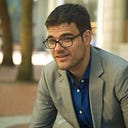The mistake I made above is in confusing the subjective. I didn’t mean to imply it makes anything relative simply that systems based on deductive reasoning will have to be systems limited to known information because they’re limited to deductive statements.
The completeness theory seems to rest on deductive arguments that are demonstrably valid in every case and thus never have to assume a premise, assumed premises are what cause the incompleteness in the incompleteness theorem.
From that same wiki article:
There are numerous deductive systems for first-order logic, including systems of natural deduction and Hilbert-style systems. Common to all deductive systems is the notion of a formal deduction. This is a sequence (or, in some cases, a finite tree) of formulas with a specially-designated conclusion. The definition of a deduction is such that it is finite and that it is possible to verify algorithmically (by a computer, for example, or by hand) that a given sequence (or tree) of formulas is indeed a deduction.
A first-order formula is called logically valid if it is true in every structure for the language of the formula (i.e. for any assignment of values to the variables of the formula). To formally state, and then prove, the completeness theorem, it is necessary to also define a deductive system. A deductive system is called complete if every logically valid formula is the conclusion of some formal deduction, and the completeness theorem for a particular deductive system is the theorem that it is complete in this sense. Thus, in a sense, there is a different completeness theorem for each deductive system. A converse to completeness is soundness, the fact that only logically valid formulas are provable in the deductive system.
If some specific deductive system of first-order logic is sound and complete, then it is “perfect” (a formula is provable if and only if it is logically valid), thus equivalent to any other deductive system with the same quality (any proof in one system can be converted into the other).
and
The completeness theorem says that if a formula is logically valid then there is a finite deduction (a formal proof) of the formula.
Thus, the deductive system is “complete” in the sense that no additional inference rules are required to prove all the logically valid formulas. A converse to completeness is soundness, the fact that only logically valid formulas are provable in the deductive system. Together with soundness (whose verification is easy), this theorem implies that a formula is logically valid if and only if it is the conclusion of a formal deduction.
He didn’t validate all of calculous simply specific systems within calculus.
We first fix a deductive system of first-order predicate calculus, choosing any of the well-known equivalent systems. Gödel’s original proof assumed the Hilbert-Ackermann proof system.
It’s a matter of premises. Deductive systems have provable premises.
“Bob only eats fruit. Fruit is the reproductive part of a plant with seeds. Oranges have seeds. Oranges are a fruit. Bob can eat oranges.”
There are no assumed premises here. (Unless we question what a fruit is or who/what a Bob is?)
The incompleteness theorem rests on anything with an assumed premise. Something that can’t be proven, which is actually a wide variety of things.
For instance, when dealing with morality there will always be an assumed premise on what the nature of “good” is because there isn’t a physical, observable, and valid in every variable essence of “good.” Hence the millions of ours devoted to talking and writing about the nature of good.
Most ethical systems eventually have to create a premise of what good is and then either try to prove this to be the case or use it to build up their ethical system but because the premise is assumed the theorem is incomplete as it rests upon itself rather than proving itself.
